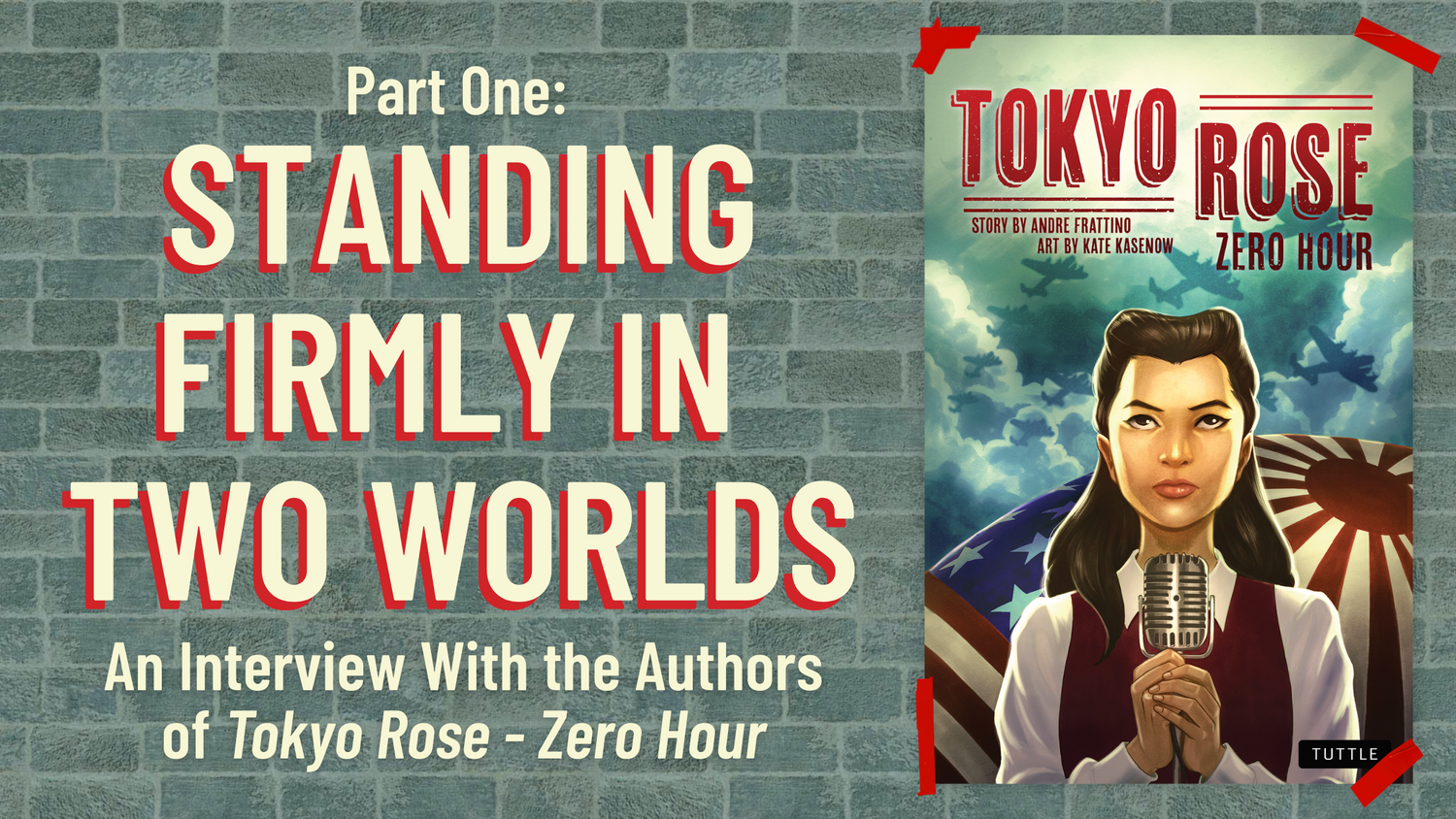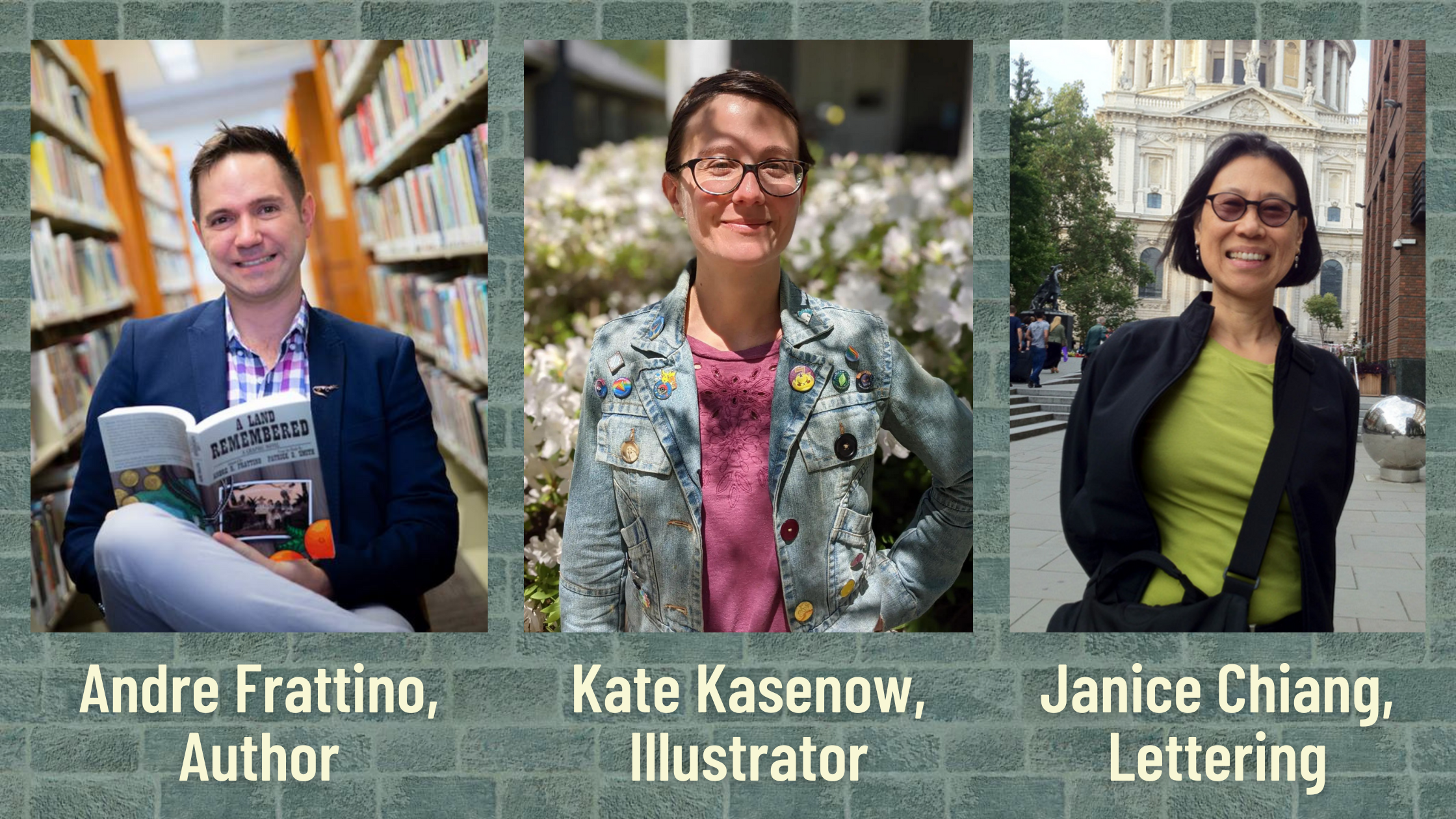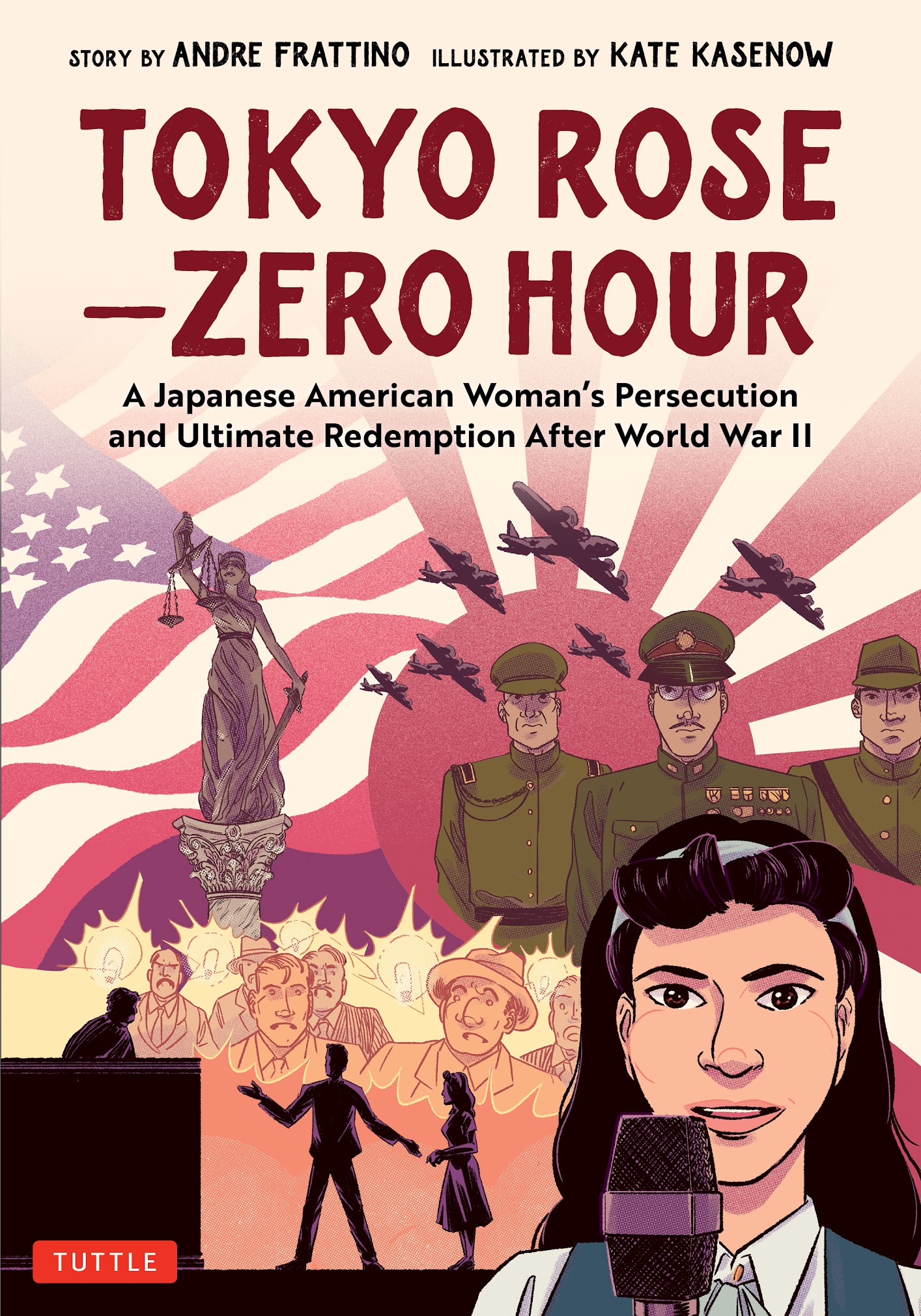Today we are sharing Part One of an interview with the authors of the brand new Tuttle graphic novel, Tokyo Rose - Zero Hour. In case you're unfamiliar with the Tokyo Rose story, it centers on Iva Toguri, a Japanese American woman who was visiting her relatives in Tokyo shortly before the attack on Pearl Harbor. Trapped in Japan, Iva refused to renounce her American citizenship. But she was forced to take a job with Radio Tokyo to host "Zero Hour," a propaganda broadcast aimed at demoralizing American troops — in the role of the infamous Tokyo Rose.
Hi, Andre, Kate, and Janice! Congrats on the release of your new book! Andre, can you tell us a bit about what initially drew you to this story?
Andre: I grew up with a fascination of WW2 from my grandfather, Stanley Kuchinski, who was a First Division Marine initially stationed at Pearl Harbor when it was attacked (he makes a cameo in the book, which was based off his exact experience of being strafed by a Japanese Zero). I watched a lot of the old war movies from the 40s, 50s, and 60s, and "Tokyo Rose" was often the disembodied voice of the villain for any war movies set in the Pacific. I always found it odd how "American" she sounded (which was obviously the point, right?). One day I decided to dive deeper into who or what Tokyo Rose was...and that's when I discovered Iva. Her experience in particular, the trials and tribulations she experienced, were so unfathomable...and yet, she maintained her innocence and her patriotism throughout all of it. She was a hero worthy of her own comic!
What was the process of researching Iva Toguri’s story, and then writing the narrative and dialogue for the book, like for you?
Andre: I researched anything I could get my hands on regarding Iva Toguri (which wasn't a whole lot), and what I found painted such a clear and compelling picture in my mind. The more complex part of writing this story was approaching the cultural aspects, and navigating them effectively. I wanted it to be organic and authentic, but as I'm neither a woman or Asian American, I needed to be mindful and deliberate in my storytelling and so it was a focused process of making sure that we were addressing things appropriately while honoring the history as well. I also wanted to make sure that Japan was correctly represented, and while Kate created beautiful scenes that transported you to the 1940s, I wanted the dialogue and actions of the characters to come alive in that time as well.
Kate, I found your illustration work incredibly powerful in bringing this story to life. How did you go about adapting all the research and history — and Andre’s writing — into a visual form?
Kate: Andre's always been adept at crafting unique characters through writing, so even when I first read the script the cast jumped right out at me. The trickier part was finding the right resources to make sure the cultural aesthetics of this period in Japanese history were right and consistent throughout my pages. There were many countless searches on the Internet, but I also found myself leaning into early Japanese films as well as revisiting my own photos from when I was lucky enough to visit Tokyo for visual inspiration.
There are some truly harrowing and exciting panels in the book (I especially love the start of Chapter 5). What was the most challenging aspect of this story to represent visually?
Kate: Oddly enough, bigger action set pieces like Chapter 5 are often easier to depict than subtle emotions during simple character interactions. In the beginning of Chapter 4, we have two characters emotionally torn about one another and the quick reversal of their relationship takes place almost entirely through conversation! Andre's writing tells a lot, but capturing the emotions on their faces was a process that took me a while to get just right.
Janice, you are not only the letterer for this book but also the Foreword writer. As you worked on this book, how did Iva Toguri’s story resonate with your own cultural experience?
Janice: When you are a member of the first generation born in America, the process of assimilation into the new country and its values is paramount to survival or success. While working on Tokyo Rose - Zero Hour, I would discover myself in familiar territory. This was exemplified through dynamics between the members of the Iva’s family — most strongly through the expectations for Iva to honor the needs of her clan before individual goals. In the Asian culture, one is a part of a whole group. To avoid bringing shame to the family’s name is a principle taught to us at a very early age. Our actions have consequences that reflect who raised us and where we come from. When we venture outside our physical homes, we represent our families.
My first language is Cantonese which was spoken in our home, at my grandparents home, the friends in my parents’ circle, and in the NYC Chinatown community. Chinese characters are composed of parts which are called radicals. Depending on the combination of radicals will denote the concept that is conveyed. For example, the Chinese concept of obedience is composed of two characters: listen and learn.
The English definition of obedience may be twofold. We think of the positive interpretation of obedience which is cooperation. Or the negative angle would be blind obedience and following a leader without question or resistance.
In short, being Asian American, I was raised with two world views — just like Iva. When I was younger, I viewed this as a disadvantage because I had two sets of rules to follow. As I matured and engaged in more independent reading and experiences, I had an epiphany: No, actually I stand firmly in two worlds with a deep understanding of the cultures and values.
Traitor or hero? Discover the truth behind the legendary Tokyo Rose. Tokyo Rose - Zero Hour tells the true story of Iva Toguri, a Japanese American woman who faced tribulation in WWII Japan, and unjust accusation in America thereafter. In a world rife with misinformation and racial prejudice, the story of Tokyo Rose has never been more relevant.



